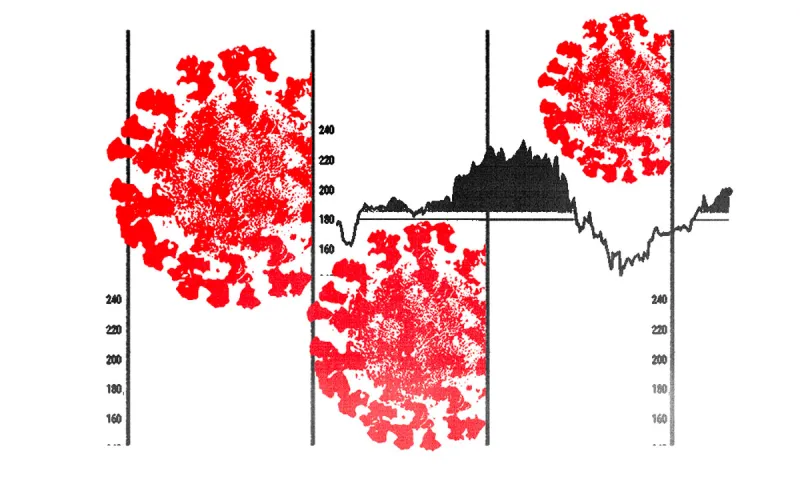
Illustration by II
After more than two months of enduring an economic shutdown and record unemployment because of Covid-19, institutional investors are now split down the middle when it comes to the question of whether the government should do more to stabilize the economy or to ensure the health of the public.
Institutional Investor began polling investment professionals five weeks ago for the II Fear Index. For this week’s index, a slight majority, 51 percent, of respondents said the government should do more to ensure the health of citizens. Forty-nine percent said government should do more for the economy. Opinions on the matter are shifting rapidly: Last week, only 42 percent prioritized the economy over health. The results of this week’s poll are based on responses from 124 investment professionals.
Investors’ attitudes are changing as broad swaths of the U.S. are still under lockdown and as unemployment continues to rise. In mid-April, only 34 percent of those polled said the economy was more vital than public health.
[II Deep Dive: The II Fear Index: More Investors Want GDP Over Public Health]
Still, investment professionals are focused on maintaining their own health and are adhering to social distancing requirements. More than three-quarters of respondents (77 percent) said they had not adjusted their level of compliance with guidance to avoid contracting the virus. Fourteen percent said they’ve increased their vigilance; only 10 percent have relaxed their compliance with social distancing and other measures.
For the II Fear Index, II also asked about the level of rationality behind stock investors’ decisions on risk. Thirty-nine percent of respondents said stock investors were making “somewhat rational assessments of risks,” while 36 percent said the decisions were “somewhat irrational.” Only 7 percent of those polled believed that risk decisions on equities were “very rational.” But 18 percent of respondents thought investors were being “very irrational” when evaluating the risks in equity markets.
[II Deep Dive: The II Fear Index: Investors Expect Long Lockdown]
Industry watchers have said that the global pandemic and its impact on the economy and human health would spur rising demand for environmental, social, and governance (ESG) investments. But only 35 percent of respondents to II’s poll said the pandemic “strengthens the case” for ESG strategies. Thirteen percent said the pandemic weakens the case for ESG.
The majority (52 percent) of respondents said the global pandemic “has little or no impact on ESG strategies.”
Looking out a year, respondents were optimistic about a number of market sectors, including long-beleaguered active managers. Sixty-two percent were “bullish” about active equity managers; 60 percent were bullish on ESG strategies.
Although investors continue to increase their allocations to private markets, respondents to the II Fear Index were split about equally between bullish and bearish (51 percent versus 49 percent) sentiment over the next year in private markets. In fixed income, 46 percent were bullish about the next year, with 54 percent saying they were bears on the asset class. Passive strategies fared the worst. Only 24 percent of respondents were bullish about passive equities over the next year.
Respondents remain skeptical about their national economies and their government’s economic leadership. Compared with last week, 19 percent of those surveyed said they are “more optimistic” about the economy over the next several months, and only 15 percent are “more optimistic” about the government’s “stewardship of the economy.”
Twenty-four percent are more optimistic than last week about central banks’ management of monetary policy.
When it comes to respondents’ near-term career prospects and compensation as well as their firms’ ability to attract and retain clients, only 15 percent are more optimistic than last week.





